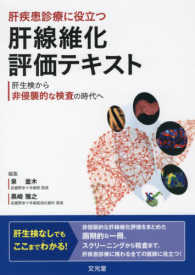Description
(Text)
Inhalt: "Shakespeare, Nature's Child": Der ästhetische Naturbegriff in der Shakespeare-Kritik des 18. Jahrhunderts von Wolfgang Weiss (München) - Shakespearian Adaptations and the Tyranny of the Audience by Brian Vickers (ETH, Zürich) - Shakespeares Geschichtsvision in romantischen Brechungen: Die Rezeption der Historien in England 1800-1825 von Ina Schabert (München) - Shakespeare, Voltaire, Baretti und die Kontextabhängigkeit von Rezeptionsaussagen von Klaus W. Hempfer (Berlin) - Un rendez-vous manqué: Shakespeare et les Français au XVIIIème siècle par Martine de Rougemont (Paris) - "O Treason of the Blood": Reverberations of "Othello" through the German Drama of the Eighteenth Century by Ilse Graham (London) - "The fairy way of writing": Von Shakespeare zu Wieland und Tieck von Roger Bauer (München) - Herders Shakespeare-Interpretation: Von der Dramaturgie zur Geschichtsphilosophie von Wolfgang Proß (München) - Shakespeare in Weimar von Eckhard Heftrich (Münster) - "So macht Gewissen Feige aus uns allen": Stufen und Vorstufen der Shakespeare-Übersetzung A.W. Schlegels von Jürgen Wertheimer (München) - Adam Müllers Shakespeare: Ein Verbündeter im romantischen Kampf gegen Napoleon von Johannes von Schlebrügge (München) - Shakespeare in der russischen Dichtung des Goldnen Zeitalters (1808-1840) von Efim Etkind (Paris) - Shakespeare in französischem und deutschem Gewande bei Polen, Russen und Tschechen von Hans Rothe (Bonn).
(Review)
"This is an important and useful volume for a variety of reasons. It breaks with the narrow vision of so many German studies on Shakespearean reception and influence and attempts to see the whole complex on a European scale. Above all, it departs from the pattern established by Gundolf in 1911, one that has fascinated and frozen so many later commentators, including still one of the most recent, Hansjürgen Blinn. It would not be enough to say that it again asks questions considered unaskable by Gundolf and restates facts he deemed unsayable. It is generally comparatist: ...there is quite enough in the volume to challenge hitherto cherished assumptions." (Roger Paulin, The Modern Language Review)
"Est-il possible d'apporter encore du neuf sur une question aussi connue, qui a été à l'origine de quelques ouvrages classiques, d'innombrables études particulières et de plusieurs recueils de textes...? Il semble que oui. ... Comment traduisait-on Shakespeare? Quelles traces la lecture de Shakespeare a-t-elle laissées dans l'oeuvre de quelques grands écrivains européens? Voilà quelques-unes des questions que pose l'ouvrage, qui constitue ... une étape dans la rédaction d'une histoire générale du drame européen." (R. Krebs, Etudes Germaniques)








